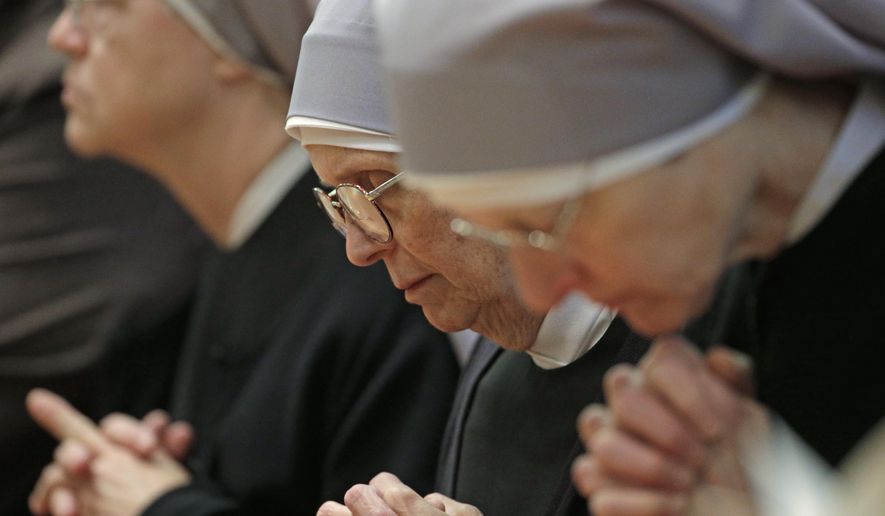An Iraqi Dominican nun known for her advocacy of religious minorities in the Middle East won’t be telling her story in Washington about terror and persecution under the Islamic State after the State Department denied her visa application to join a delegation to describe the situation in her home country.
Sister Diana Momeka was the only Christian in the delegation and the only member blocked from the trip, leading some of her American supporters to question why she was singled out.
The sister was told Tuesday by the U.S. consulate in Erbil that her application for a nonimmigrant visa had been rejected on the grounds that she was “not able to demonstrate that [her] activities in the United States would be consistent with the classification of the visa,” according to her denial letter. Sister Diana planned to speak with other representatives of persecuted minority groups in the region, including Yazidis and Turkmen Shia Muslims, at various venues in Washington for a period of about a week in mid-May.
Her application was rejected despite having two formal letters of invitation from her sponsors, the 21st Century Wilberforce Initiative and the Institute for Global Engagement, and a letter of endorsement from Rep. Anna G. Eshoo, the California Democrat who co-chairs the congressional Caucus on Religious Minorities in the Middle East.
“We were shocked and disappointed when we found out,” said Elyse Anderson, 21st Century Wilberforce Initiative’s senior adviser and director of special projects.
According to sources close to the situation, the Dominican sister’s paperwork wasn’t even reviewed due to the fact that she is currently considered an internally displaced person (IDP), forced to leave her home because of the Islamic State. Sister Diana was told that as long as she was an IDP, she would not be able to receive a U.S. visa. But her supporters were able to point to several recent delegations of persecuted minorities, including IDPs, who were all granted visas to travel to the U.S.
A State Department official said the department is legally prohibited due to privacy concerns from discussing the conditions of a specific visa case, but said in a statement that the U.S. government was nonetheless “very concerned about the safety and rights of Iraq’s minority populations, including Christians,” and recognizes the “existential threat” posed to these communities by the Islamic State.
Although the department would not comment on the case, applicants for U.S. visas who cannot cite a permanent home in their own country typically face a higher bar in traveling to the U.S. for fear they present a greater risk of not returning to their home country.
But the sister’s American supporters remain angry at the denial.
“It is beyond ironic,” said Ms. Anderson, “that Sister Diana, who we had hoped would come to Washington to speak about the worsening plight of Iraq’s displaced Christians and other beleaguered religious minorities, was apparently prevented from doing so precisely because she is herself a displaced person.”
Sister Diana’s status as an IDP means that she is essentially a refugee living within her own country. She and the rest of her order were forced to flee their convent in Qaraqosh, Iraq, along with thousands of other Christians, when Islamic State forces overtook the city last August. The order has since moved to a temporary convent in Erbil, while continuing their ministerial work among the other displaced.
The trip to Washington would not have been the Dominican sister’s first visit to the United States. According to a statement from the Dominican Sisters of Adrian, Michigan, she has been visiting the United States since 2008 “to live and minister” with their order while getting “much-needed respite” from violence in Iraq. In 2012 she received a doctoral degree in ministry from the Catholic Theological Union in Chicago, and even gave the commencement address at her graduation.
“Sister Momeka is a gift to the world and a humanitarian whose work reminded me — when I met her in Iraq — of Mother Teresa,” said Rev. Johnnie Moore, co-chairman of the National Hispanic Christian Leadership Conference, adding it was “incomprehensible to me that the State Department would not be inviting Sister Momeka on an official visit to the United States, as opposed to barring her from entry.”




Please read our comment policy before commenting.